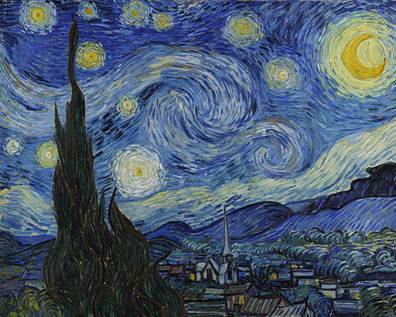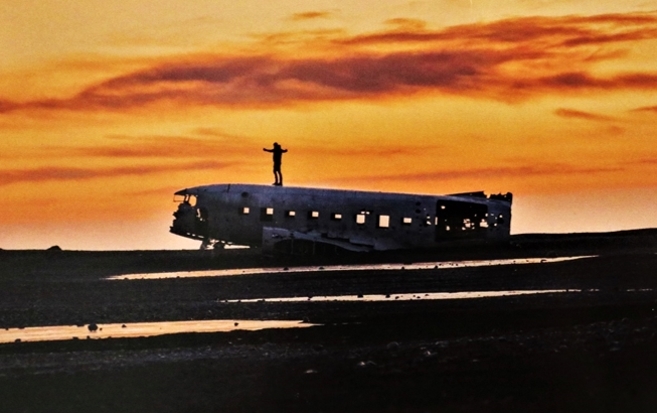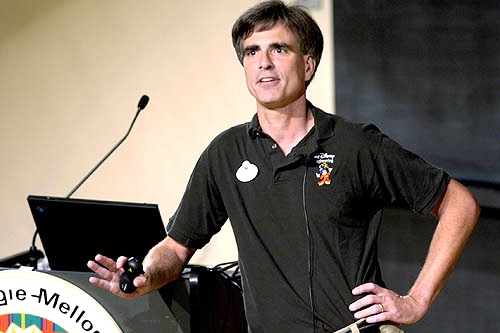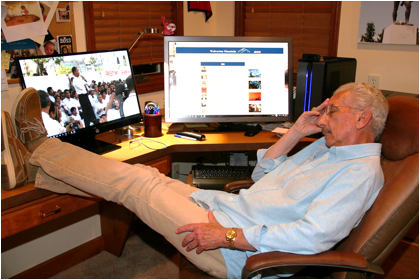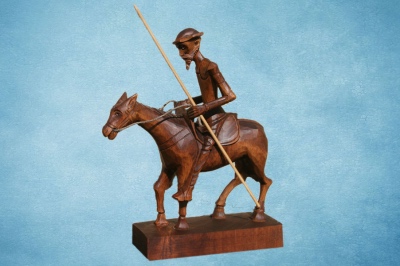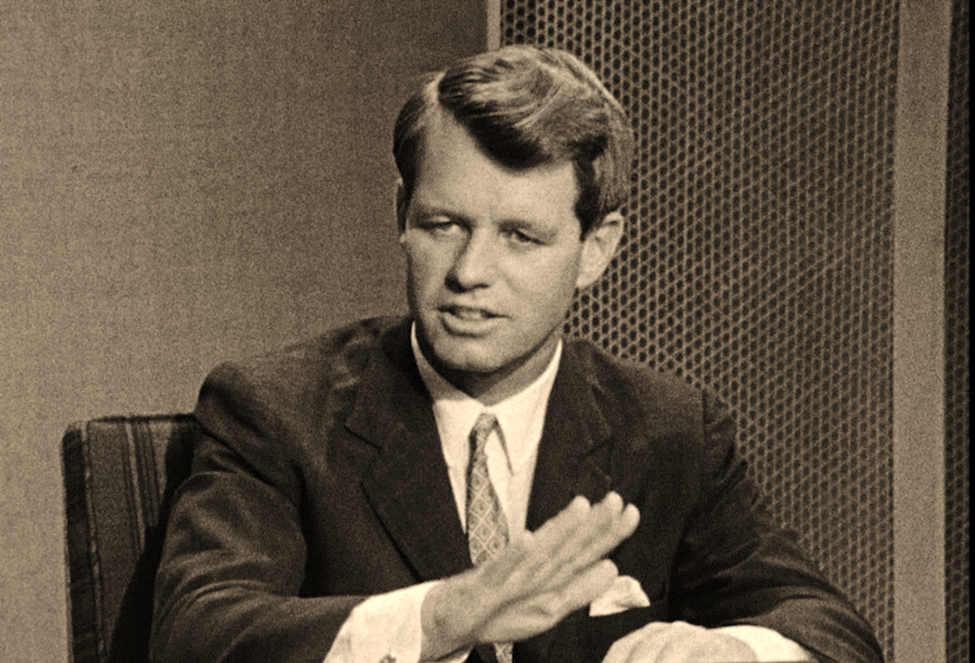Look Again. You May Be the Light.
I designed this essay to get my bearings or, at least, feel better about my place in the universe. Therefore, I want to get my cards out in advance. I get that I am driven and have been for most of my life. Most of the impetus behind my determination can be traced to my family’s move to Mt. Lebanon just before I entered juror high. I didn’t like the pain that I felt intellectually. For much of the last half of my life, I have been aware that I benefited from that pain. During much of that time, I have taught at several different schools. I’m still teaching two classes this semester. I grasp the mantra, no pain, no gain.
Nevertheless, there is still the haunting question about what motivates me in my twilight years. A recent insight to that question reared its aging face. In early November, I had an operation on my foot for plantar fasciitis and tarsal tunnel syndrome. These two problems caused enough pain to severely limit my walking due to that discomfort.
The surgery was successful, and I am walking without any pain. That was the good news about the surgery. The bad news was that moving around my home was with a walker for a month after the operation. Going up and downstairs was another story.
I have done two dances with death, which forced me to realize that my clock was ticking. Both dances radically transformed my life. Knowing that I could have died woke me up to living. Doing the two dances were blessings. However, neither dance forced me to realize that I was getting older.
That insight hit me as I recovered from my surgery. Hobbling around the house with a walker caused me to address not death but the time between now and death. I finally have been able to come to terms with the issue of aging. I’m fine today, and I anticipate being fine a year from now. However, I realize that my general health won’t remain good ad infinitum. It will incrementally get worse. Realizing that I am aging rattled me and still does. I wouldn’t be writing this essay if I were guaranteed another fifteen to twenty years at my present level of medical health. Many medical issues won’t get better…only worsen.
Amid my personal wrestling with the aging process, I have faced more than several personal problems that aren’t of my causing but which adversely affect me. Ukraine is an example. Putin is attempting to flex his muscle by invading Ukraine. How many Ukrainians will be killed between now and when the situation is resolved.
I can’t protect the Ukrainian people, none of whom I have ever met. On the other side of the world, in Myanmar, my family faces the dangers of a civil war. I know my children and granddaughters. I can’t protect any Ukrainians that I don’t know, nor can I protect my family that I love.
I have helped my family financially with wire transfers. However, I wired them two weeks ago, and they haven’t received my wire transfer. It usually takes three to four days to get to them. I spent a couple of hours the other day calling my bank to find out what the delay was. They said that sometimes wire transactions take longer.
The next day Moh Moh emailed me and said that the wire transfer from my bank was missing a digit. I called my bank, and it took me fifteen minutes to get my bank on the same page as I was. My bank had sent the wire transfer with a missing number. I had to show my bank what the bank in Myanmar needed. I can explain what drives me regarding my family. I love them. After my bank understood their mistake, they rectified the problem.
I have AnthemMediBlue Extra, which covers much of what Medicare doesn’t. At 79-years old, I have a handful of prescriptions. I had two medications that needed to be refilled. I had my primary-care physician send Anthem refill request. However, I never got the required medications. Finally, I called the number on the back of the card and talked to several people whose job was to deal with questions about prescriptions. It took a couple of days to determine where my two drugs were. I was now down to a couple more pills left. The person told me that I had put a hold on both meds. My retort was that I had my doctor send a request for renewals for both drugs, and then I called the next day to put a hold on them.
I asked to transfer me to a supervisor. I went over the same complaint and got nowhere. I asked to speak to someone else. Again, I repeated what I had said a dozen times over two days of calling.
On the second day, I called again. Finally, I got a person that listened to me. This person put me on hold to find out what had happened. Five minutes later, she found their mistake and said she would send the two drugs via special delivery to me. I thanked her and said that the lack of either medication wouldn’t have adversely affected me even though I had run out of both prescriptions. However, people who got a similar run-around might have medical problems due to Anthem’s mistake.
That isn’t the end of the story. I regularly get emails from Kurt Small, the COO of Anthem, asking me to evaluate the service. So, I did. I did the survey and added that I wanted to him thank the one employee who resolved my issue with my medications, and I wanted to talk to him about my situation. Guess what? I never heard from him. At least my bank finally recognized their problem and dealt with it.
That is the backstory. In high school, one of the assignments that I hated was memorizing a hundred lines of poetry or prose each semester while in Mt. Lebanon High School. I hated it. Nevertheless, that pain was a blessing to me in my life after high school. I have written an essay about Omar Khayyam, often referred to as “the Astronomer-Poet of Persia.” I memorized one of the quatrains of the Rubáiyát while in high school.
The Moving Finger writes; and, having writ,
Moves on: nor all thy Piety nor Wit
Shall lure it back to cancel half a Line,
Nor all thy Tears wash out a Word of it.
Another Persian mystic was by Rumi. The Western world knows him by that name. However, his full name was Sipahsalar as Muhammad bin Muhammad bin al-Husayn al-Khatibi al-Balkhi al-Bakri.

Rumi was born in 1207 to Persian parents in either Afghanistan or Tajikistan. When the Mongols invaded Central Asia in the early 13th century from the East, his family moved to present-day Turkey. Rumi loved to write poetry. When he was eighteen, he met another Persian poet, Attar. Attar understood Rumi’s artistic ability. He happened to see Rumi and his father walking and wrote of what he saw, “Here comes a sea followed by an ocean.”
In addition to writing in Persian, Rumi also wrote in Arabic, Greek, and Turkish. Rumi’s writing masterpiece, Maṭnawīye Ma’nawī, Spiritual Couplets; مثنوی معنوی. It is also known as the “the Quran in Persian.” Interestingly, many scholars consider Maṭnawīye Ma’nawī the best mystical poem in the entire history of the world. It is a long 27,000-line poem made up of couplets.
This is the couplet that I memorized six decades ago.
If everything around you seems dark, look again.
You may be the light!
Back then, I thought that it was a nice idea. Today, Rumi’s couplet resonates with me. It puts a label on what motivates me in my life. Bobby Kennedy’s Ripple Effect speech in the 20th century paralleled what Rumi stated about being the light in the darkness of the 13th century.
 _________________________________________________________________________________________
_________________________________________________________________________________________
This is an interesting addendum. Rumi was a follower of the Sufi tradition within Islam. I have been to a Sufi service, in which Whirling Dervishes convey Allah’s message to the congregation. When he died in December of 1273, his son created the Mevlevi Order, also known as the Order of the Whirling Dervishes. His followers built the Mevlâna Museum in Konya, Turkey. Rumi’s remains are in that museum. Each December, there is a celebration of his life, which includes Whirling Dervishes.
 _________________________________________________________________________________________
_________________________________________________________________________________________
This video is Rumi’s view of his death.







